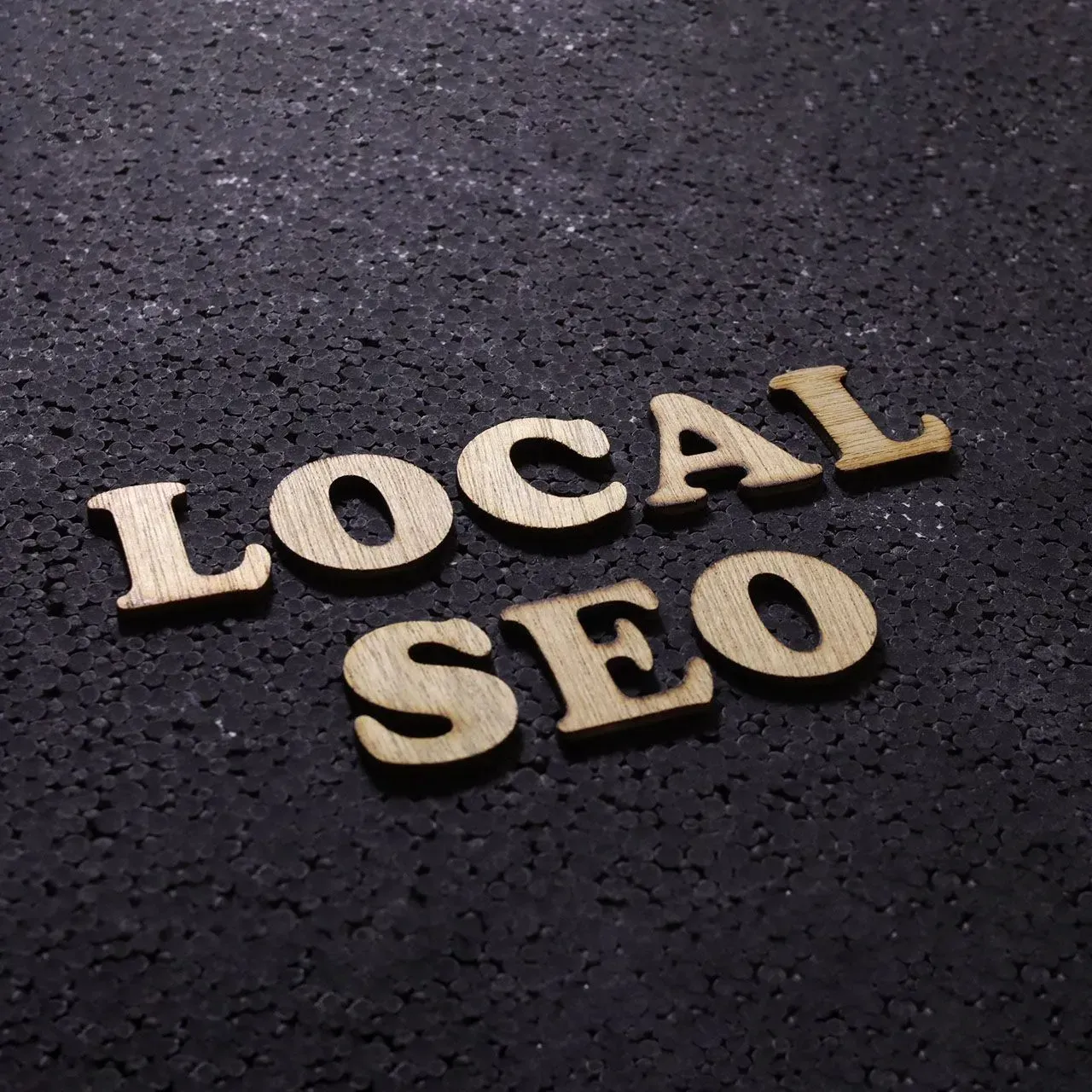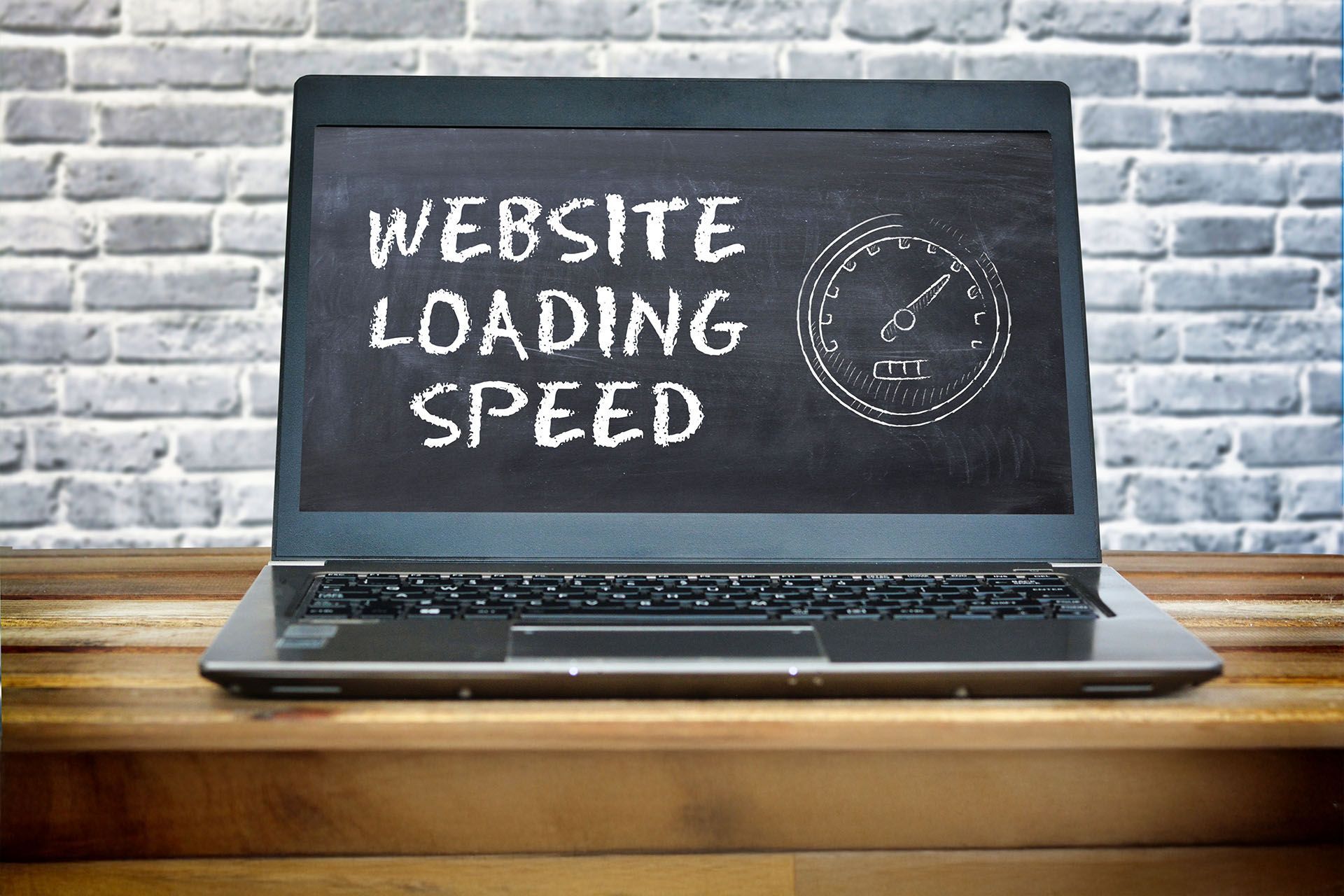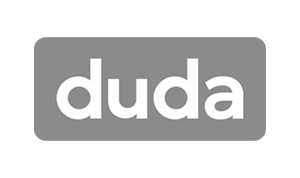Crown Street, Wollongong, 2500
How To Rank a Website Locally
Do you want your website to rank locally and become the go-to destination of customers in your area? The key to achieving a high ranking website lies in mastering the art of Local SEO (Search Engine Optimization). In today's digital age where online visibility is a critical factor for success, having a strong online presence is essential for businesses to stay competitive and relevant.
In this blog, we'll walk you through the essential strategies and tips on how to rank a website locally in order to enhance your website's presence within specific geographic regions. From optimising for local search queries to leveraging Google Business Profile and building local citations, we'll explore actionable steps to ensure your website stands out in the search results. Read on to learn more.
What is Local SEO?
Local SEO, or local search engine optimisation, is a digital marketing strategy aimed at optimising a website or online presence to enhance its visibility in the search results. It involves various tactics, including optimising on-page elements (such as location-specific keywords and content), claiming and optimising Google Business Profile listings, building local citations, encouraging online reviews, and engaging with local events in the local community.

The primary objective of local SEO is to ensure that local businesses appear in local search results when users are looking for products or services in a specific geographic area. Significantly, local SEO is crucial for brick-and-mortar businesses, service providers, and professionals targeting a local customer base.
Why is it important to rank a website locally?
Ranking a website locally is important for several reasons, especially for local businesses targeting a specific geographic area:
Increased Traffic and Conversions
By optimising for local search, businesses increase their visibility to local customers actively seeking the products or services they offer. This targeted approach not only attracts potential customers but also enhances the likelihood of higher conversion rates and increased sales. Local SEO ensures that the traffic drawn to the website is more aligned with the business's offerings, creating valuable opportunities for converting online searches into actual business transactions.
Competitive Advantage
Local SEO allows businesses to stand out in their local market. By having a strong local online presence, businesses can have a competitive edge over competitors who may not have optimised for local search. This strategy is useful in attracting local customers and establishing a strong foothold in the local business landscape.
Improved Online Visibility
Local rankings contribute to improved visibility in online directories, maps, and local search platforms. This is particularly important for attracting mobile users searching for businesses in their vicinity. Through optimisation, businesses can ensure that they are discoverable at the top of the search results, effectively reaching and engaging with their mobile audience.
Enhanced Customer Trust
Local results frequently showcase reviews and ratings, and a positive online reputation cultivated through dedicated local SEO efforts can play an important role in enhancing customer trust. This, in turn, significantly influences the decision-making process of potential customers', making them more likely to choose and engage with your local business.
Boost in Foot Traffic
For brick-and-mortar businesses, local SEO drives increased foot traffic to physical locations. When potential clients discover accurate and relevant information online, they are more likely to visit your physical address in person. This strategy enables you to target the right local customers for your local business by optimising your website and online presence for local search engines, attracting those actively seeking products or services within your area.
Cost-Effectiveness
Since local SEO targets a specific audience, it can be more cost-effective than other SEO strategies and traditional advertising. This focus allows local business owners to allocate resources more efficiently and achieve a higher return on their investment.
Alignment with User Behavior
Many users perform local searches when looking for immediate solutions. Ensuring that a website ranks locally aligns with user behavior, making it more likely that businesses will be discovered by those seeking local products or services.

Competitive Advantage
Local SEO can help small businesses compete with larger businesses in their local area by acquiring high local search rankings. Ranking high in the search results not only attract customers but it also contributes to an expansion of your market share, allowing your business to thrive in the local market landscape.
What are the best practices to follow in order to rank a website?
Local SEO (Search Engine Optimization) is directly connected to ranking a website locally. When a website is designed with SEO in mind, it not only focuses on technical aspects like keyword optimisation and page speed but it also integrates local SEO strategies that collectively contribute to a positive user experience. As a result, An SEO friendly web design has an increased chances of ranking higher in the search results. Here are some effective tips on how to rank a website locally:
Google Business Profile (GBP)
Google Business Profile is a free tool that allows you to control how your business appears on Google Search and Maps. It enables you to engage with customers, share updates, showcase products and services, display your menu, and more. On top of that, Google Business Profile is a crucial factor in local search rankings. A well-optimised GBP can significantly impact how a website ranks in the search results, especially on Google Maps.
To make sure your local business is optimised for Google Business Profile, you must:
- Claim and verify your Google Business Profile page.
- Use Google Posts within your account.
- Enhance your profile with a comprehensive description that includes relevant keywords and links.
- Engage with customers, respond promptly to their feedback, and encourage them to share reviews.
- Engage on social media and add posts to Google Business Profile.
If Google authenticates your business, it may reward you with a valuable sidebar space in the local search. Not only is this useful for your SEO but you can also enhance your customer's experience by making it easier for your customers to find you through udpated reviews, contact information, and operating hours.
Local Keywords
Finding the best keywords for your content or website is crucial for effective local SEO. Two essential factors that help in identifying the best keywords are:
Search Volume and Competition
Search volume is the metric that suggests how frequently users are entering a particular keyword or phrase into search engines like Google. This numerical representation provides insights into the level of interest and demand for specific topics or products within the online ecosystem.
When selecting keyword ideas, it's important to strike a balance between search volume and competition. While high search volume indicates that many people are searching for that term, it also means higher competition. So, it's important that you assess the competitiveness of a keyword and consider whether your website has the authority and resources to compete effectively for that particular search term.
Search Intent
Search intent, also known as user intent or query intent, refers to the purpose or goal behind a user's online search. It is crucial in both SEO and content creation as it delivers pertinent and valuable results. There are generally four main types of search intent:
- Informational Intent
With informational intent, users have the intent to acquire information. This could be anything from learning about a historical event to finding instructions on how to cook a specific recipe. Common keywords associated with informational intent include "how to," "what is," "history of," etc.
- Navigational Intent
With navigational intent, users are looking for a specific website or page. They already have a destination in mind and they use search tools to navigate to it more quickly. This intent reflects a focused search to access a particular online location efficiently.
- Commercial Intent
Users with commercial intent actively seek information to make informed purchasing decisions, showing interest in a product or service. This involves comparing options, reading reviews, and evaluating suitability. For local businesses aiming to connect with potential customers during their decision-making process, comprehending and addressing commercial intent is crucial.
- Transactional Intent
With transactional intent, users want to perform a specific action. This could include buying a product, signing up for a newsletter, filling out a form, or interacting with a web application. This intent signifies a clear goal-oriented approach, where users are actively seeking to engage or transact with a particular service, product, or platform.
NAP Citations
Another way to make sure that people will find you through search tools is setting up your NAP. In SEO, NAP stands for Name, Address and Phone Number. By having consistent and accurate business information online, including online directories, you increase your chances of being recognised and ranked in the search engines.
Make sure your NAP is presented as crawlable HTML text on your website so that Google can effectively display it in location-specific search results. Don't just add the NAP within the image, as search engines cannot crawl images like HTML text. Instead, place your NAP prominently in the footer or header of your website. Also ensure it is featured on your "Contact Us" page.
Geographic Targeting
Local SEO specifically targets geographic locations. It involves optimising a website to appear in search results when users in a particular area search for local products or services. By tailoring online presence to local search queries, businesses can enhance their visibility and connect with nearby customers effectively. This strategic approach is particularly valuable for small businesses aiming to establish a strong local presence and attract a loyal customer base.
Local Link Building
Acquiring backlinks from local sources and directories is part of local SEO. These local links contribute to the website's authority in the local context, then influences its ranking for relevant local searches. When business websites have a well-organised structure, they are more likely to achieve higher rankings since the search algorithms can understand them better. By incorporating internal building links from different types of websites, you can establish connections to other pages within your website that feature content with high rankings.

Online Reviews and Ratings
Search engines, particularly those focused on local results, consider the quantity and quality of online reviews when determining the relevance and reliability of a business. Positive reviews not only contribute to a better online reputation but they also reinforce the website's credibility and authority in the local rankings.
When potential customers see positive feedback from others, it instills confidence and increases the likelihood of them choosing the business. This positive perception is crucial in converting potential leads into actual customers. As part of their local SEO, it's essential for businesses to actively manage and encourage online reviews to enhance their local search presence and attract a broader local audience.
Mobile Search Optimisation
Most users search for local businesses through their mobile devices. That's why it becomes crucial to enhance the mobile experience. To put it simply, your site should load as fast as possible. If a page takes more than one second to load, it might be too slow. Use optimisation tools to test whether each page of your local business site is mobile-friendly, if it's not then redesign your website templates and reduce image sizes immediately.
Location Pages
Adding specific geographical information is the most effective way to inform both search engines and local searchers about the locations you serve. If your business serves a specific state, clearly state it. By providing this information, Google can more accurately rank your website in those particular areas, improving the visibility of your services to people searching in those locations.
Optimised Local Content
Optimising local content is crucial for boosting a website's local ranking. Keep in mind that websites are ranked by search engines according to their overall authority, which involves their reputation and various factors indicating their value to users.
By optimising content to include relevant keywords, geographic data, and information about local services or products, search engines can understand the local context of a website better. This, in turn, enhances the overall authority of the site and increases its visibility in the search results.
To create a content that connects with your local audience, you can follow these tips:
- Prioritise writing for humans over search engines.
- Add anecdotes, opinions, and insights to your content to make it more relatable and unique.
- Integrate humor, jokes, and puns to captivate and entertain your readers.
- Support your arguments with examples, statistics, and data.
- Enhance credibility and depth by including quotes or references to other renowned works.
- Engage readers with hypothetical or rhetorical questions to stimulate critical thinking.
- Employ metaphors to simplify and explain complex concepts and ideas.
- Optimise URL, title tags, headers, meta descriptions, and content.
- Use content optimisation tool to help you analyse keyword usage, readability, and overall content structure.
Perform a Local SEO Audit
Performing a local SEO audit is crucial for improving a website's search engine ranking. The audit involves a comprehensive evaluation of various elements, such as the accuracy of business information, online reviews, website structure, and local keyword optimisation.
The audit also addresses technical aspects like website speed, mobile-friendliness, and the quality of backlinks, which all contribute to a positive user experience. By rectifying issues and implementing strategic improvements based on the audit findings, businesses can align their online presence with search algorithms, ultimately leading to higher search rankings and increased visibility among the target audience.
Local Community Participation
Local community participation significantly enhances a website's search engine ranking by fostering connections and engagement within the community. To contribute to the website's authority, actively participate in local events and sponsor local organizations so you can generate local backlinks. The resulting local citations and mentions from local sources can help you establish the business's credibility and relevance in local searches.
Positive reviews from engaged community members strengthen the website's reputation, signaling trustworthiness to search engines. Social signals from community-focused social media interactions further boost the site's popularity. Additionally, participation provides opportunities to naturally incorporate local keywords, optimising content for local search queries. Overall, local community involvement creates a positive web of signals that align with search algorithms, ultimately increasing the website's visibility and ranking in local search results.
Data from Google Analytics and Google Search Console
By regularly analysing and acting on the data from these services, you can make informed decisions to enhance your website's local relevance, user experience, and overall performance in local listings.
Google Analytics
Google Analytics provides insights into user behavior and traffic sources, helping you to optimise for a positive user experience and tailor content to local audiences.
- User Behavior Analysis
Google Analytics provides insights into user behavior on your website. Understanding how visitors interact with your site helps you identify popular content, user engagement patterns, and potential issues. By optimising for a positive user experience, you indirectly enhance your local ranking.
- Traffic Sources
Analysing traffic sources helps you understand how users find your site. If a significant portion of your traffic is coming from local searches, you can tailor your content and keywords to better target local audiences.
Google Search Console
Google Search Console offers information on keyword performance, click-through rates, and geographic data, allowing the identification of opportunities and refinement of content strategies. By analysing and acting on data from both tools, website owners can enhance local relevance, user experience, and overall performance in local search results, ultimately improving their local ranking.
- Keyword Performance
GSC provides data on the keywords that lead to clicks and impressions. Analysing this data helps you identify the terms for which your site is appearing in the local results. You can then optimise your content and meta tags for these keywords.
- Click-Through Rate (CTR)
Monitoring CTR for specific queries or pages gives insights into the effectiveness of your titles and meta descriptions. Improving these elements can boost your visibility in the search result page.
- Geographic Data
Google Search Console offers information on the countries and regions where your site appears in the results. Utilise this data to understand your site's performance and adjust your strategy accordingly.
How long does it take to see results from local SEO efforts?
Generally, local businesses might notice improvements in search rankings and visibility within a few weeks to a few months after implementing SEO strategies. However, achieving significant and lasting results often requires consistent effort over several months.
Factors such as the competitiveness of the local market, the effectiveness of the implemented SEO strategies, and the specific goals of the SEO campaign all contribute to the timeline for observable results. Regular monitoring and adjustments to the strategy can help optimise the impact of local SEO efforts over time.
How can you measure the success of your local SEO website ranking?
Monitoring the success of your local SEO efforts involves several key metrics and tools:
Google Analytics
Track website traffic, user behavior, and conversion rates. Identify which pages are performing well and understand user engagement.
Google Business Profile Insights
Monitor data provided by Google Business Profile, such as the number of views, clicks, and actions (like calls and direction requests). This helps gauge the visibility and engagement with your local business listing.
Rank Tracking Tools
Use SEO tools that track your website's ranking for specific keywords in local searches. This helps assess your position relative to competitors. By regularly monitoring these rankings, you can identify trends, track the impact of optimisations, and make informed adjustments to your local SEO strategy.
Customer Reviews
Regularly check and respond to customer reviews on platforms like Google, Yelp, and other relevant review sites. Responding to reviews, whether positive or negative, demonstrates your commitment to customer satisfaction and community engagement, further enhancing your local SEO efforts.
Local Citations
Ensure consistent business information across online directories by using tools that can help you manage and monitor local citations. By using such tools, you can streamline the process and maintain accurate business listings across various online platforms.
Website Analytics for Local Pages
If you have specific local landing pages, monitor their performance through analytics to understand how users interact with localised content. Analysing user behavior, such as bounce rates, time spent on page, and conversion rates on these pages, provides valuable insights into the effectiveness of your local SEO efforts.
Local Search Audits
Periodically conduct audits to evaluate the accuracy of your business information across the web, such as checking for consistency and accuracy in NAP (Name, Address, Phone number) data. This ensures that customers receive correct and up-to-date details about your business.
Takeaway
Local SEO is important in enhancing a website's visibility and ranking within specific geographic areas. By optimising for local search, businesses can connect with their target audience more effectively, ensuring that their products or services are prominently featured in relevant search results. Key elements such as location-specific keywords, Google Business Profile optimisation, citation building, and community engagement are all essential for the success of local SEO strategies. Ultimately, businesses that invest in effective local SEO practices are better positioned to attract local customers, improve online visibility, and outperform competitors in the local market.
At Love My Online Marketing, we provide professional SEO services that are tailored to enhance your online presence within your target geographic areas. With our expertise in local SEO, we can help businesses to not only rank higher in local search results but to also establish a strong connection with their local audience. Get in touch with us today to schedule your free website strategy session.

Love My Online Marketing has 10+ Years of working alongside businesses and helping them grow. Discuss your options for online success from website Design and Development through to Google Marketing.
Do you want more traffic and business leads?
Love My Online Marketing is determined to make a business grow. Our only question is, will it be yours?




































